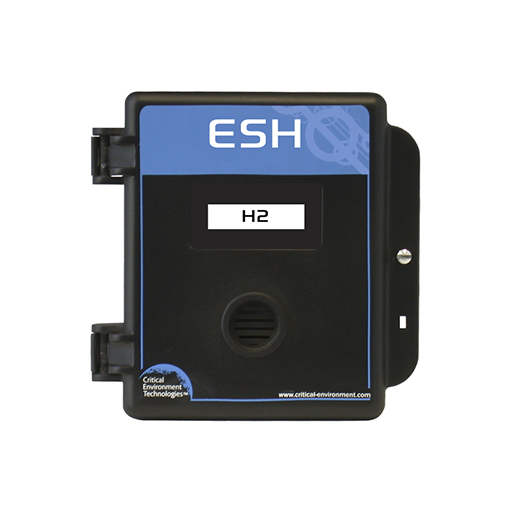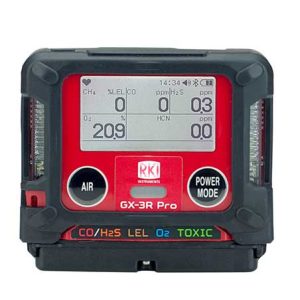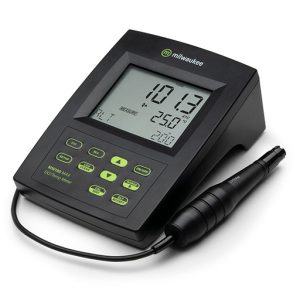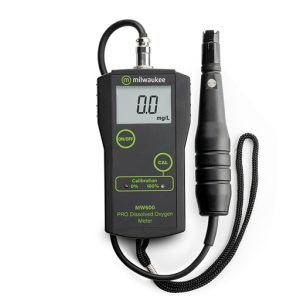For monitoring: Acetylene, Hydrogen, Methane, Propane, TVOCs
The ESH-A Remote Sensor offers flexible location monitoring of combustible gases or PID TVOCs in non-hazardous, non-explosion rated, commercial and light industrial applications. It communicates with the device it is attached to using current loop into a 100 ohm load or a voltage signal of 0.40 to 2 volts. It can be located at a maximum distance of 200 meters from the compatible controller or transmitter.
The mounting height of the ESH-A Remote Sensor depends on the gas being monitored. A gas that is heavier than air should be detected 6 inches from the floor and a gas that is lighter should be detected on or near the ceiling. A gas that has the same density as air should be detected in the “breathing zone”, where most human breathing takes place, which is 1 to 2 m (4 to 6 ft) from the floor.
The ESH-A Remote Sensor comes in a standard water / dust tight, corrosion resistant ABS / polycarbonate enclosure with a hinged, secure door and is designed to protect the sensor and provide easy mounting components.
An optional splash guard may be installed to further protect the remote sensor in water spray or washdown applications.
The ESH-A Remote Sensor is not a standalone device, it must be used with the SCC, DCC, LPT-P, LPT-M, LPT-B, CGAS-A or CGAS-D (remote sensor’s target gas will differ based on device).
Model
ESH-A-CC3H8-100
Catalytic Propane (C3H8) ESH-A Remote Sensor (0 – 100% LEL),water / dust tight enclosure
Features
- Allows remote location monitoring of combustible gases or TVOCs
- Current or voltage output signal
- 12 – 24 VDC supply power
- Communicates with many of CETCI’s controllers and transmitters
- Easy to to install and maintain
- Standard water / dust tight, corrosion resistant enclosure (drip proof)
- IP54 rated with optional splash guard installed
Specifications
Target Gas
| Catalytic Sensors | Acetylene (C2H2),Hydrogen (H2),Methane (CH4),Propane (C3H8) |
| PID Sensors | TVOCs |
| Infrared Sensors | Propane (C3H8) |
Mechanical
| Enclosure | ABS / Polycarbonate, corrosion resistant Copper coated interior to reduce RF interference IP54 rated with splash guard installed |
| Weight | 181 g / 0.4 lbs |
| Size | 127 x 127 x 53 mm / 5.0 x 5.0 x 2.1 inches |
Input/Output
| Output | Current loop into a 100 ohm load, or Voltage signal of 0.40 to 2 volts |
Electrical
| Power Requirement | 12 – 24 VDC, 1 W Class 2 (do not use AC power source to power the ESH-A) |
| Current Draw | 45 mA @24 VDC (max) |
| Wiring | 4-conductor 18 AWG stranded, shielded |
Environmental
| Operating Temperature | -20°C to 40°C (-4°F to 104°F) |
| Operating Humidity | 15 – 90% RH non-condensing |
Certifications
| Conforms to | CSA-C22.2 No. 205-12 / UL508 (Edition 17):2007 EMC Directive 2004/108/EC, EN 50270:2006, Type 1, EN61010 FCC. This device complies with part 15 of the FCC Rules. Operation is subject to the following two conditions: (1) This device may not cause harmful interference, and (2) this device must accept any interference received, including interference that may cause undesired operation. RoHS compliant circuit boards |
For monitoring: Acetylene, Hydrogen, Methane, Propane, TVOCs
The ESH-A Remote Sensor offers flexible location monitoring of combustible gases or PID TVOCs in non-hazardous, non-explosion rated, commercial and light industrial applications. It communicates with the device it is attached to using current loop into a 100 ohm load or a voltage signal of 0.40 to 2 volts. It can be located at a maximum distance of 200 meters from the compatible controller or transmitter.
The mounting height of the ESH-A Remote Sensor depends on the gas being monitored. A gas that is heavier than air should be detected 6 inches from the floor and a gas that is lighter should be detected on or near the ceiling. A gas that has the same density as air should be detected in the “breathing zone”, where most human breathing takes place, which is 1 to 2 m (4 to 6 ft) from the floor.
The ESH-A Remote Sensor comes in a standard water / dust tight, corrosion resistant ABS / polycarbonate enclosure with a hinged, secure door and is designed to protect the sensor and provide easy mounting components.
An optional splash guard may be installed to further protect the remote sensor in water spray or washdown applications.
The ESH-A Remote Sensor is not a standalone device, it must be used with the SCC, DCC, LPT-P, LPT-M, LPT-B, CGAS-A or CGAS-D (remote sensor’s target gas will differ based on device).
Model
ESH-A-CC3H8-100
Catalytic Propane (C3H8) ESH-A Remote Sensor (0 – 100% LEL),water / dust tight enclosure
Features
- Allows remote location monitoring of combustible gases or TVOCs
- Current or voltage output signal
- 12 – 24 VDC supply power
- Communicates with many of CETCI’s controllers and transmitters
- Easy to to install and maintain
- Standard water / dust tight, corrosion resistant enclosure (drip proof)
- IP54 rated with optional splash guard installed
Specifications
Target Gas
| Catalytic Sensors | Acetylene (C2H2),Hydrogen (H2),Methane (CH4),Propane (C3H8) |
| PID Sensors | TVOCs |
| Infrared Sensors | Propane (C3H8) |
Mechanical
| Enclosure | ABS / Polycarbonate, corrosion resistant Copper coated interior to reduce RF interference IP54 rated with splash guard installed |
| Weight | 181 g / 0.4 lbs |
| Size | 127 x 127 x 53 mm / 5.0 x 5.0 x 2.1 inches |
Input/Output
| Output | Current loop into a 100 ohm load, or Voltage signal of 0.40 to 2 volts |
Electrical
| Power Requirement | 12 – 24 VDC, 1 W Class 2 (do not use AC power source to power the ESH-A) |
| Current Draw | 45 mA @24 VDC (max) |
| Wiring | 4-conductor 18 AWG stranded, shielded |
Environmental
| Operating Temperature | -20°C to 40°C (-4°F to 104°F) |
| Operating Humidity | 15 – 90% RH non-condensing |
Certifications
| Conforms to | CSA-C22.2 No. 205-12 / UL508 (Edition 17):2007 EMC Directive 2004/108/EC, EN 50270:2006, Type 1, EN61010 FCC. This device complies with part 15 of the FCC Rules. Operation is subject to the following two conditions: (1) This device may not cause harmful interference, and (2) this device must accept any interference received, including interference that may cause undesired operation. RoHS compliant circuit boards |












